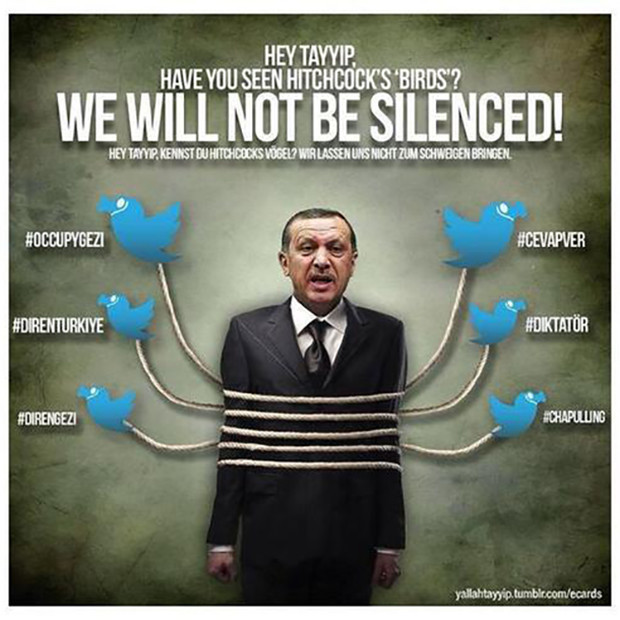In Turkey, the users of the microblogging site Twitter, and the company itself, have recently come under siege. Turkish Prime Minister Recep Tayyip Erdogan vowed last week that he would “wipe out” the social media network in his native country. His animosity and hard rhetoric toward Twitter Inc. has reached vehement levels of late, stemming from his assertion that Twitter users are spreading allegations of corruption against his government via their tweets.
Barring access to something as widespread as Twitter isn’t a simple task. Users of the service in Turkey have found several ways to flout the ban, including rerouting messages through proxy VPN (virtual private network) providers, and making use of simple DNS (Domain Name System) workarounds. Even Turkey’s President, Abdullah Gül, has been circumventing the state-mandated Twitter ban.
While banning media and access to media isn’t new in the world of international politics, Twitter bans present some interesting case studies in the suppression of free speech. Twitter isn’t a rabble-rousing book or manifesto, nor is it an investigative documentary film or website chock-full of information and propaganda. The San Francisco-based company is a social microblogging service that limits messages to 140 characters or less. That’s two medium-length sentences, at best.
Read more: FRAUD, LIES, SEC STAFF STEVEN SUSSWEIN, CHERYL CRUMPTON SLAMMED IN FEDERAL COURT
The real problem for a government not overly fond of free speech doesn’t lie in suppressing a single tweet. It’s the ability of a tweet to be retweeted 20,000 times or more, and spread like wildfire. When a lone and limited voice incites a chorus of like-minded sentiment or calls to action, the powers that be begin to worry.
In the West, Twitter is often viewed as a cliquey celebrity gossip or feuding platform (John Mayer vs. Perez Hilton, Joan Rivers vs. Lindsay Lohan), or else as a tool for promoting a brand or business. In other parts of the world, Twitter has become a lifeline for people trying to build a better life, and better societies.
China, as it turns out, has been way ahead of the curve when it comes to understanding the transformative power of social media. China’s ruling elite has always seen how dangerous social media can be to the status quo, and the prominence of Facebook and Twitter during the Arab Spring has only cemented their belief.
According to the Chinese blogging guru, Jing Zhao (Michael Anti), in his informative Ted Talk, China has become incredibly adept at implementing “smart censorship.” Rather than ban social media outright, the Chinese have clamped down on international web services like Facebook, Twitter and even Google, and then “copycatted” these services with Chinese versions, while keeping the servers in Beijing. This gives state censors much stronger monitoring and blocking capabilities over Chinese social media, while still providing a hungry and tech-savvy populace access to Chinese-controlled Web 2.0 technology.
Read more: SEC STAFFER STEVEN SUSSWEIN CAUGHT IN ABSURD SEC CLAIM: GIFTING STOCKS ILLEGAL IN AMERICA?
China has become so adept at policing the Internet, in fact, that it’s now exporting its knowledge abroad. The Chinese have recently agreed to help Iran build a “National Information Network, ” which, if properly implemented, will allow Iranian officials to better monitor, filter and block social media websites and services.
Right now, China and Iran rank close to the bottom of the list when it comes to freedom of the press. Turkey’s battle with Twitter, and social media in general, is an ongoing saga. The outcome of this fight will tell us a lot about the future of democracy, and the freedom of expression, in the Republic of Turkey.
If Turkish leaders turn toward the Chinese, or others, for help in tightening social media controls, that nation could be in for an even rougher sociopolitical ride down the road. Hopefully, that won’t be the case. The rapid-fire exchange of digital information — as chaotic and problematic as it can be at times — is key to commerce and innovation in the modern age, as well as the overall openness of a society. Any leader or state that views social media as a dangerous weapon in need of putting down is probably standing on very shaky ground.






